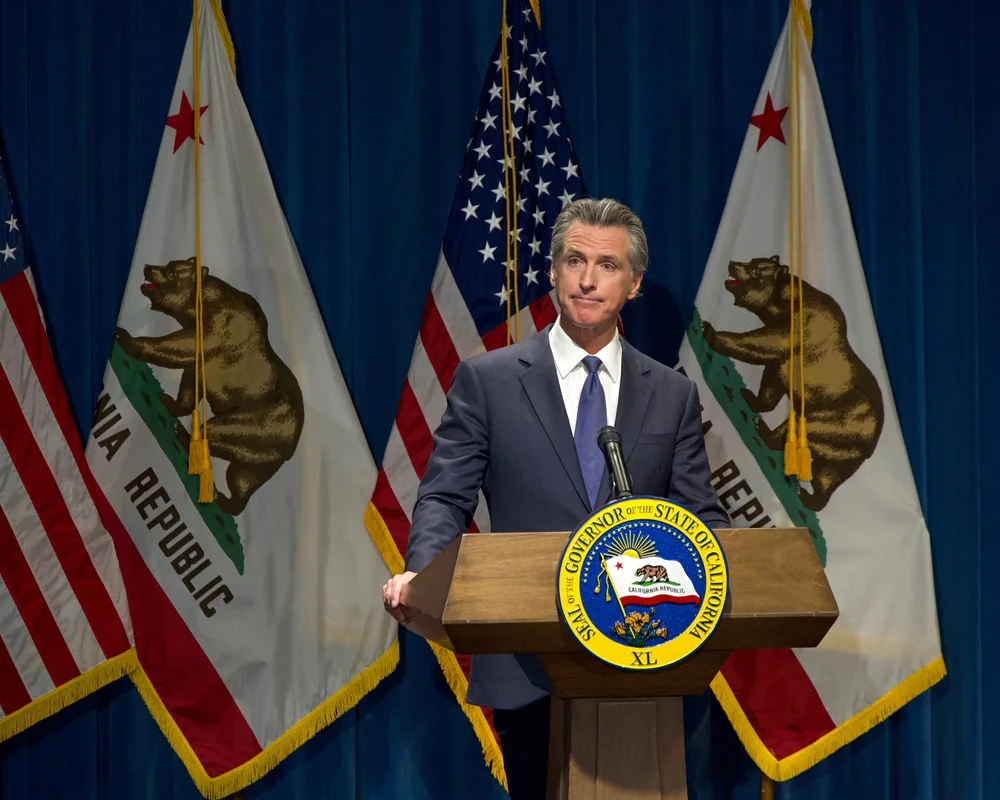.avif)
The Worst Thing about Trump’s Approach to Trade
A much larger issue with President Donald Trump’s approach to tariffs has largely been overlooked: its lawlessness and the corresponding opportunities for cronyism and corruption.
The U.S.-U.K. deal and the scaling down of U.S.-China tariff rates a few weeks ago suggest that a major trade war has been averted, although negotiations continue. Furthermore, recent court rulings could dramatically reduce the scope of tariffs, although a federal appeals court has stayed the rulings.
Markets have seemingly shaken off their concerns about tariffs and their impact on economic growth. However, a much larger issue with President Donald Trump’s approach to tariffs has largely been overlooked: its lawlessness and the corresponding opportunities for cronyism and corruption.
Laws should outline general principles and establish clear rules. They create a framework for people to pursue their own goals. Good laws are predictable, stable, and apply broadly. They promote a level playing field for companies to compete in the marketplace and for individuals to develop and carry out their plans, whether investing, traveling, building an addition to their home, setting their family budget, or engaging in a whole host of other activities.
Trump’s approach to trade is the exact opposite of good law. Unpredictability is its hallmark. There are no clear principles governing the negotiation of trade agreements. Nor are there clear goals. The application of tariffs so far has been deeply inconsistent and uneven – some proposed tariffs have been postponed, while others have not. Some countries got special treatment, others didn’t. Some industries got special exceptions while the rest had to bear the brunt of skyrocketing tariff rates.
And even now, more than a month after liberation day, the tariff regime can hardly be described as stable. We’re told that dozens of negotiations are taking place behind closed doors. But the administration has been remarkably coy about specifics. No one knows when or how those deals will conclude. In the meantime, small and medium-sized U. S. businesses with any exposure to international trade and international supply chains (which includes most), are barely hanging on.
But while tariff uncertainty is costly and disruptive, more troubling is the capriciousness and favoritism behind Trump’s application of it. Why should large tech companies get massive exemptions from the tariffs on China? Could it be related to the millions of dollars they gave to support Trump? The arbitrariness of U.S. trade policy has created a significant opportunity for corruption. Lobbying by car manufacturers seems to have gotten them special extensions and carve-outs from auto tariffs. Then we have the bizarre proposed 100% tariff on “foreign” films, which may or may not apply to U.S. companies producing content outside the United States.
The recent UK trade deal grants special access for U.S. ethanol and beef – but why not for U.S. clothing, tools, computers, and everything else? President Trump appears to be catering to special interests. These handouts align with the Trump administration’s relatively casual approach to the rule of law. Whether skipping due process, ignoring court orders, or using carte blanche legal harassment to shakedown “unfriendly” law firms, the pattern of lawlessness becomes clearer every day.
The President believes he has the authority to create new tariffs wholesale and to negotiate special trade deals with every U.S. trading partner. While Congress granted the President limited authority to impose tariffs and to negotiate trade deals regarding national defense issues, Trump has extended this to include virtually everything, allowing him to do as he pleases, which is inconsistent with the constitutional separation of powers.
This free-wheeling policy-making undermines our constitutional order.
Even right-of-center groups have sued the administration over its ad hoc tariff policies. These tariffs constitute a massive tax hike that Congress did not authorize. Furthermore, they can reasonably be seen as illegal takings of people’s wealth. The recent court rulings by the U.S. Court of International Trade and the D.C. District Court have stated that the President does not have the authority to implement unilateral, wide-ranging tariffs.
The precedents set by President Trump will create serious problems for future interactions between the business sector and the state. The most obvious one is that future presidents will feel they have a free hand to change tariff rates, however and whenever they want. This will increase the cost of doing business as executives must spend more time, energy, and resources hedging against future changes in trade policy.
Other countries will also be more reluctant to develop deeper trade ties with the U.S. because they now know that the President can hold their economic connection to the U. S. hostage for geopolitical concessions. Congress should tie the administration’s hands on trade, not only for the benefit of Americans and the economy, but for the Trump team’s good.
The history of how and why Congress granted tariff powers to the President is long and complicated. Laws such as the Tariff Act (passed in 1930), the Trade Expansion Act (passed in 1962), the Trade Act (passed in 1974), and the International Emergency Economic Powers Act (IEEPA, passed in 1977) give the executive branch power to regulate imports after some kind of review or analysis of national defense or declaration of emergency. Conservative scholars, such as Ilya Somin and Michael McConnell, argue that the IEEPA does not grant the President the authority to impose tariffs at all.
This is why President Trump declared a vague national emergency on Liberation Day, invoking the IEEPA. Although the courts may eventually curtail the scope of this declaration, Congress could void it altogether through a joint resolution. Such a move would be expedited by statute. Yet this approach would be a tall order. It would require a two-thirds majority to override a presidential veto. A more effective structural reform would involve rescinding the IEEPA altogether, although this too would require a two-thirds majority to be veto-proof.
A better strategy might involve members of Congress slipping reforms to trim Trump’s tariff discretion into the “Big, Beautiful, Bill;” which he would be reluctant to veto. Most Republicans are probably unwilling to do this. Yet perhaps the more thoughtful ones who value limited government would be willing to cross Trump on the issue of tariffs.
Doing so would preserve a nation governed by laws and not by the whims of whoever occupies the White House.
Paul Mueller is a Senior Research Fellow at the American Institute for Economic Research.
Economic Dynamism

Unlocking Public Value: A Proposal for AI Opportunity Zones
Governments often regulate AI’s risks without measuring its rewards—AI Opportunity Zones would flip the script by granting public institutions open access to advanced systems in exchange for transparent, real-world testing that proves their value on society’s toughest challenges.

The Causal Effect of News on Inflation Expectations
This paper studies the response of household inflation expectations to television news coverage of inflation.

Downtowns are dying, but we know how to save them
Even those who yearn to visit or live in a walkable, dense neighborhood are not going to flock to a place surrounded by a grim urban dystopia.

The Housing Crisis
Soaring housing costs are driving young people towards socialism—only dispersed development and expanded property ownership can preserve liberal democracy.

The Economic and Constitutional Vices of California’s “Once-only” Wealth Tax
California's proposal to tax billionaires seems at first menacing, but could have drastic negative consequences for the future of the state.
.webp)
California’s Proposed Billionaire Tax and Its Portents for Normal People
The deeper significance of California's billionaire tax is in how it redefines what it means to own property in the United States.


.avif)

.jpeg)




.jpg)





